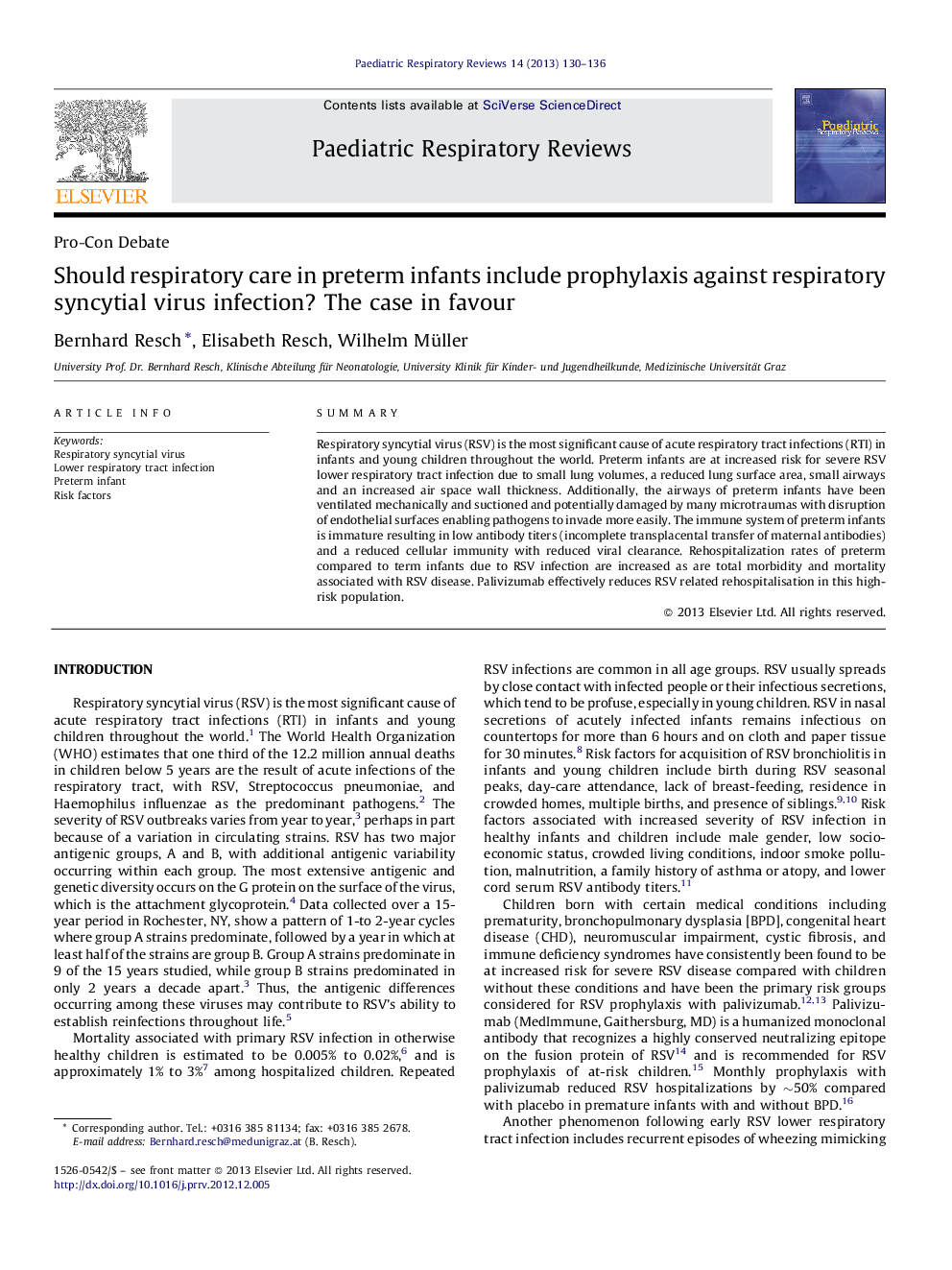| Article ID | Journal | Published Year | Pages | File Type |
|---|---|---|---|---|
| 4170899 | Paediatric Respiratory Reviews | 2013 | 7 Pages |
SummaryRespiratory syncytial virus (RSV) is the most significant cause of acute respiratory tract infections (RTI) in infants and young children throughout the world. Preterm infants are at increased risk for severe RSV lower respiratory tract infection due to small lung volumes, a reduced lung surface area, small airways and an increased air space wall thickness. Additionally, the airways of preterm infants have been ventilated mechanically and suctioned and potentially damaged by many microtraumas with disruption of endothelial surfaces enabling pathogens to invade more easily. The immune system of preterm infants is immature resulting in low antibody titers (incomplete transplacental transfer of maternal antibodies) and a reduced cellular immunity with reduced viral clearance. Rehospitalization rates of preterm compared to term infants due to RSV infection are increased as are total morbidity and mortality associated with RSV disease. Palivizumab effectively reduces RSV related rehospitalisation in this high-risk population.
